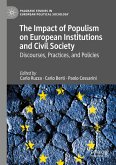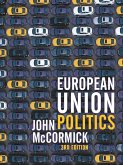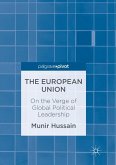`This is a most welcome contribution to current discourses on democratising the European polity. Warleigh's thought-provoking analysis, by drawing from a rich spectrum of normative theorizing and empirical sources, produces sharp insights and a valuable reference tool for anyone interested in the governance and polity of Europe' - Dimitris N Chryssochoou, University of Exeter `Warleigh's theoretically sophisticated and empirically rich inquisition of the nature and evolution of democratic reform in the European Union will be an important addition to the literature. This book is neither euro-sceptic nor EU-friendly. It is a challenging call to all interested parties - citizens and scholars - to take seriously the question of investing EU institutions and procedures with more than just a surface veneer of democracy' - Jo Shaw, Professor of European Law, University of Manchester This book comprehensively reviews one of the most salient, ongoing debates at the heart of the European Union (EU) today: democratic reform. It provides a thorough evaluation of how democracy might best be defined in the transnational context of the EU and explores the key strategies that have been deployed to enhance the Union's democracy from the Single European Act to the present day. In considering why the strategies have been unsuccessful, Alex Warleigh contends that the EU can only democratize itself by abandoning federalism, and working towards a more participatory democracy based on flexibility and active European citizenship. The book therefore advances important new ways in which the EU's `democratic deficit' problems might be addressed more effectively than in the past. Marking a significant contribution to this key on-going debate, Democracy in the European Union: Theory, Practice and Reform will be essential reading for all students, scholars and professionals seeking a deeper understanding of the nature of the EU and the reform challenges it faces into the twenty-first century.
Hinweis: Dieser Artikel kann nur an eine deutsche Lieferadresse ausgeliefert werden.
Hinweis: Dieser Artikel kann nur an eine deutsche Lieferadresse ausgeliefert werden.








